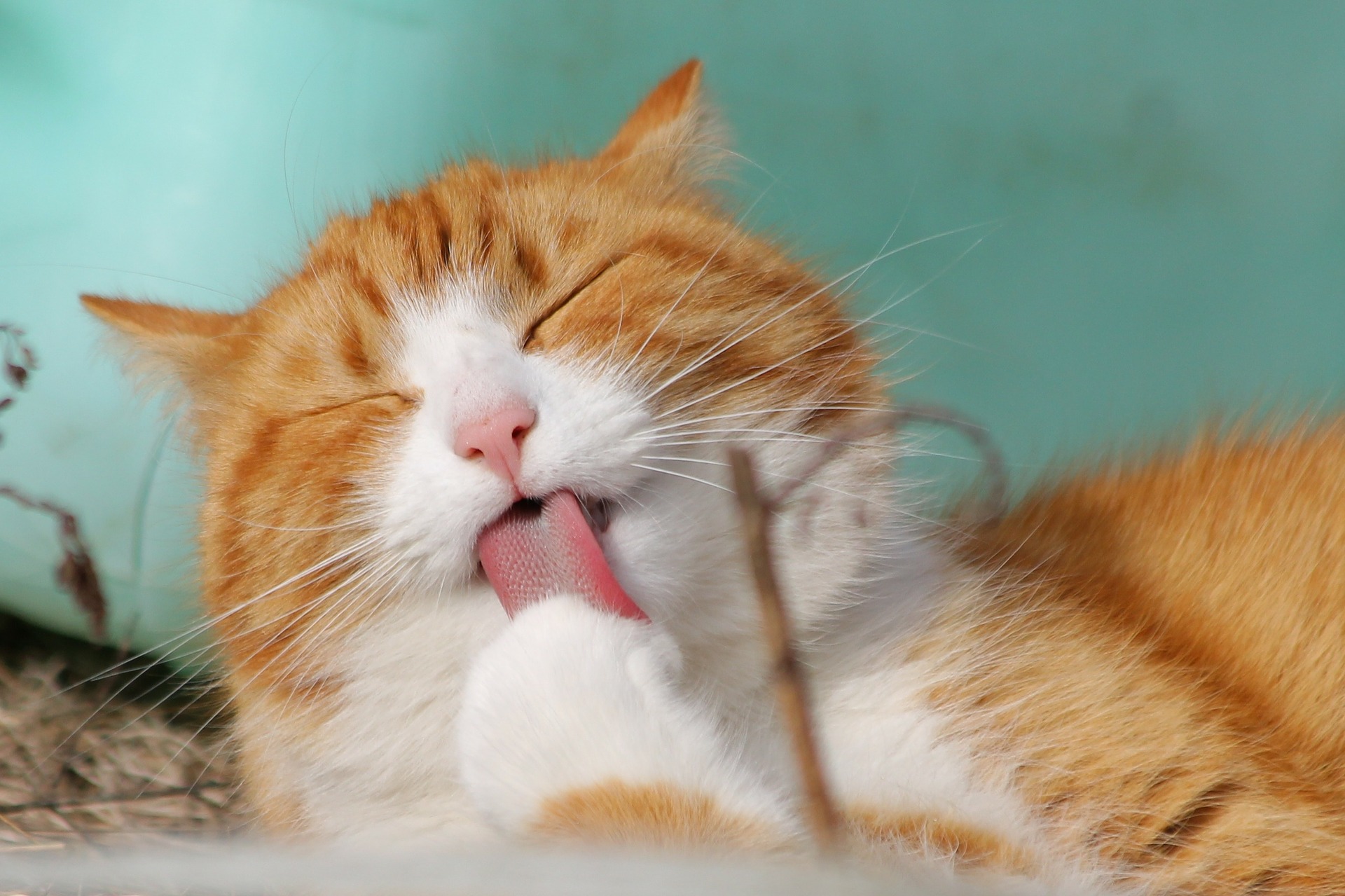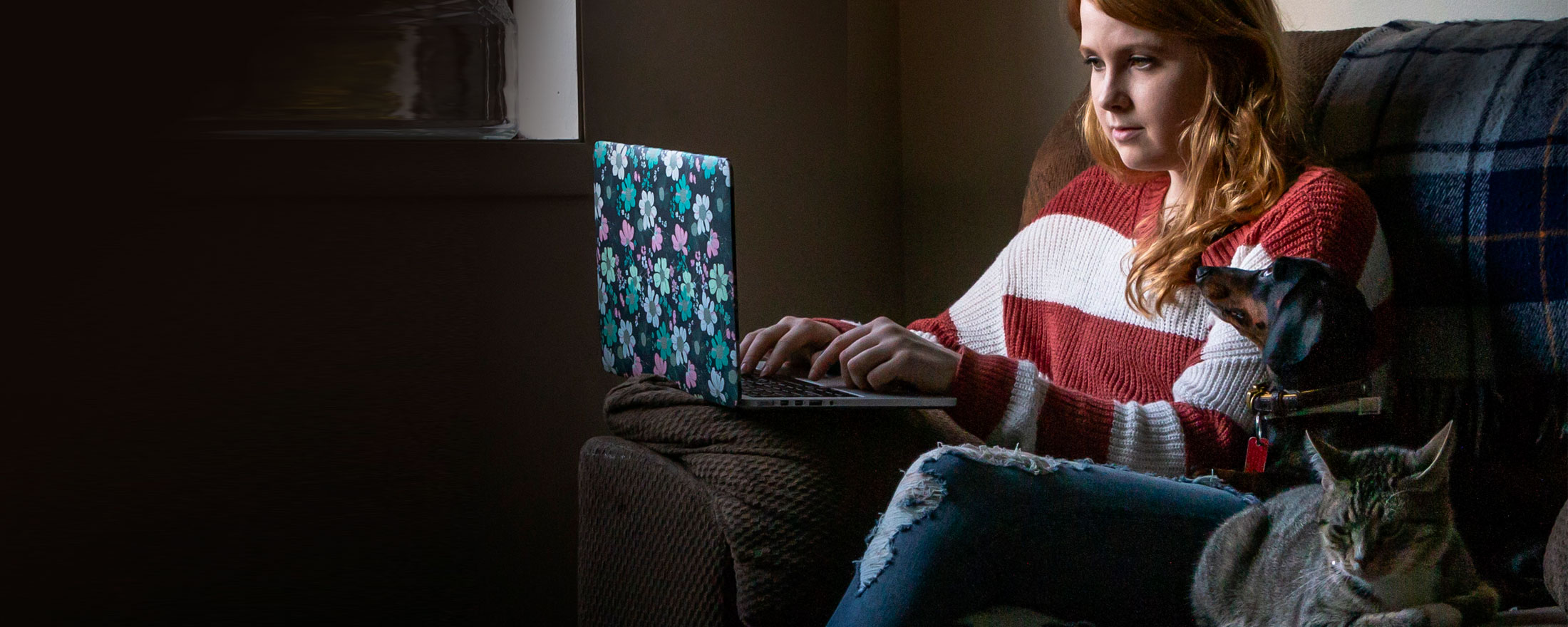
06 May Signs Your Cat May Have Dental Pain
Dental disease is one of the most common, if not the most common, health issue that occurs in cats. A healthy oral cavity in cats is very important for their digestive health and quality of life. Cats use their mouth for grooming, hunting, and eating. Our felines can spend anywhere from 10-15% of their time grooming themselves. When cats are experiencing tooth pain or dental problems, they will groom less, leading to an unkempt coat.
Why are Cat Dental Problems Hard to Detect?
It can be challenging to know when our pets, especially cats, are ill. Although cats are typically thought of as a predator, they are often preyed upon in the wild. When an animal displays signs of being unwell in the wild, it is seen as weakness and can lead to the demise of the animal.
And despite being the second most common pet in the US—fish hold the number one spot—cats still are not truly domesticated animals and have an intrinsic nature leading them to hide any vulnerability. This makes it difficult for us as owners and caretakers to be their best advocate in health.
Signs Your Feline May Be Experiencing Tooth Pain
Although it can be difficult to discern if your feline is in pain, cats often do provide clues that dental disease may present. Some of these clues or clinical signs include:
- Drooling
- Decreased appetite
- Vomiting
- Swollen and bleeding gums
- Bad breath
A cat with a painful mouth may be reluctant to eat until they are absolutely hungry, then vomit up the food. Some cats may simply go up to the food bowl and growl. They would like to eat, but it hurts to go through the physical process of chewing.
Cats have a rough tongue with barbs called papillae on their tongue. Their tongue is important for grooming as well as eating furry prey in the wild. When a painful mouth is present, cats may ingest food using only their tongue. This can result in the kibble filling up their stomach leading to chronic vomiting after eating. Unfortunately, many cats still do not show outward signs of oral pain when they are dealing with dental disease. They will often continue to eat since their survival instinct to eat is so strong.
Common Feline Dental Diseases
Dental disease can manifest in different forms in the cat. Periodontal disease, tooth resorption, stomatitis, malocclusions, oral tumors and oral trauma are all cat teeth problems that can occur.
Periodontal Disease
Periodontal disease has been documented as one of the most common oral health conditions of our feline patients. It is a persistent and progressive disease process, defined as inflammation of the tissues surrounding the teeth.
Malocclusions
Occlusion is defined as the relationship between the teeth of the maxilla (upper jaw) and mandibles (lower jaw). When this relationship is abnormal a malocclusion results and is also called an abnormal bite or an overbite in cats. A malocclusion can result in an abnormal bite which can affect function and result in pain.
Tooth Resorption
Resorptive lesions can occur at any age and in any breed of cat. There are two predominant types of tooth resorption, which are Type I and Type II.
In Type I tooth resorption, most of the tooth structure is intact with tooth defects within the crown and/or root. The only treatment for teeth with Type I resorption is surgical extraction.
In Type II tooth resorption, the tooth root is being replaced with bone. Treatment for Type II tooth resorption often involves coronectomy (crown amputation).
Stomatitis
Stomatitis is an extremely painful oral condition in cats. It is an overzealous reaction of the immune system to plaque accumulation on the surface of teeth. The caudal region of the oral cavity becomes red and ulcerated with thickened tissue. The pain associated with this severe inflammation makes it a challenge for cats to eat and enjoy a good quality of life.
Oral Tumors
The most common oral mass seen in cats is squamous cell carcinoma. This is a highly aggressive malignancy that requires a very early diagnosis and treatment to have a chance at a favorable outcome. Unfortunately, the majority of cats with squamous cell carcinoma have a diagnosis made late in the course of the disease.
Our feline companions can also have benign oral masses or inflammatory swellings that often carry a favorable prognosis with proper surgical therapy.
Cat Dentist in Castle Rock, Colorado Springs & Loveland
At Animal Dental Care and Oral Surgery, our mission is to provide the highest quality specialty dental care for pets in Southern Colorado. If you believe your feline companion is displaying signs of tooth pain or dental disease, please call us to schedule a consult: (719) 536-9949.
Is your cat suffering from dental pain in Castle Rock, Colorado Springs or Loveland, CO?
Contact us today at (719) 536-9949!
Image by Karin Laurila from Pixabay (5/6/2019)

